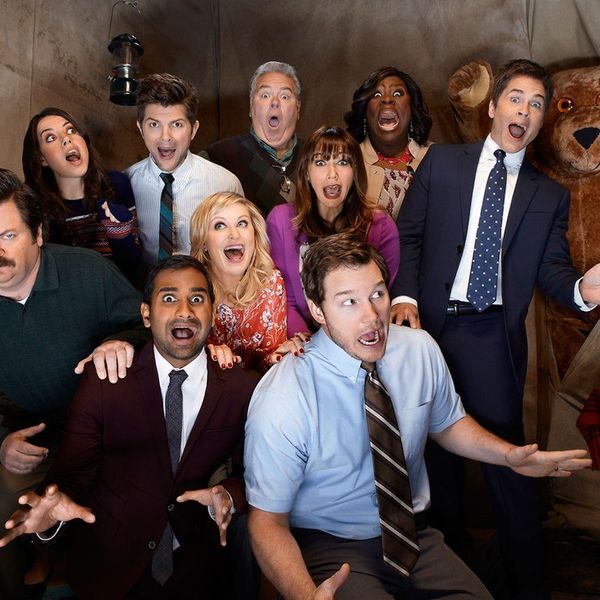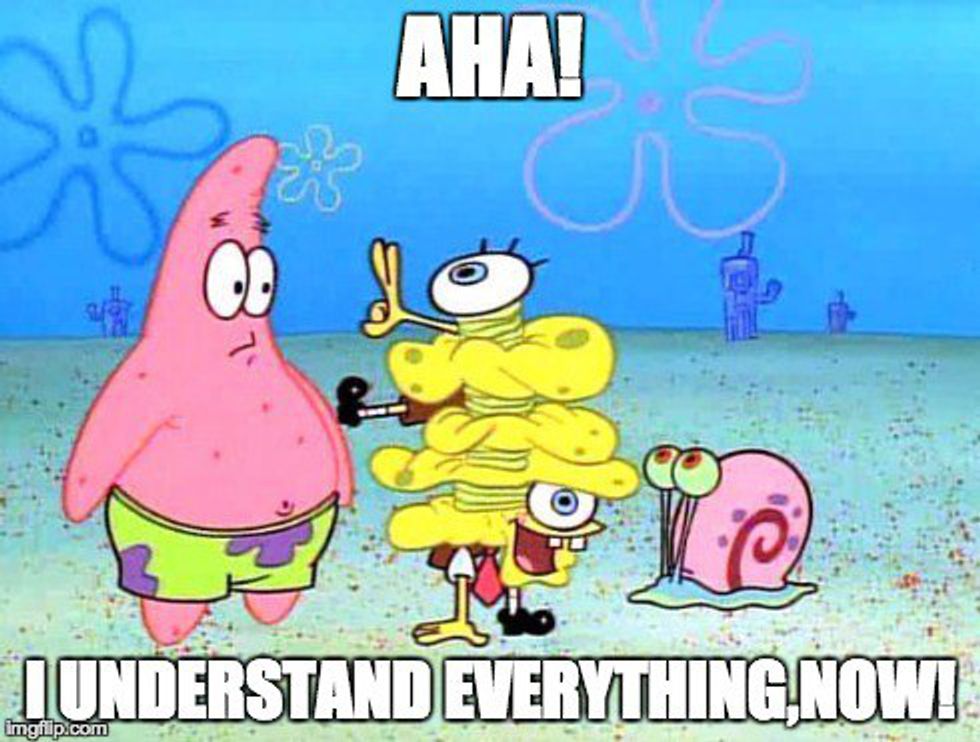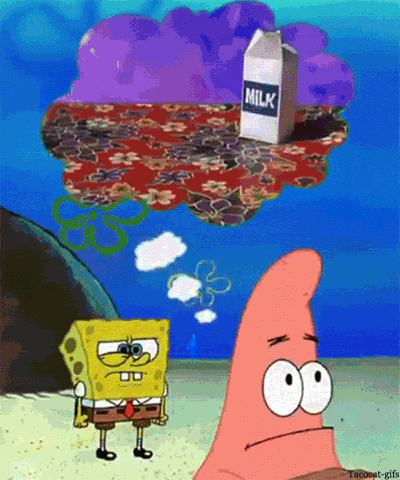For my generation, cartoons are something that continue to unite us, even as we enter our late teens and early 20s, This huge tangle of references and memories which we are all able to draw from during a lull in conversation, or even as a reference in a conversation about something serious. The question that popped into my head recently, was: if we (my generation) have internalized and learned as much as it appears we have from these cartoons, what sort of values are being imposed on us? And what type of questions are being introduced to us at this age?
As it turns out, the themes tend to be quite challenging, and honest—especially upon re-watching the shows as an adult. (Disclaimer: I also very strongly believe that I am over-analyzing these episodes, but, hey, that's sorta-kinda part of the fun here. (I mean, can you really blame a guy, for wanting to dream? (Or at least wanting to see more in something than is there?)
The cartoon which sparked the question, and gave the answers, was the one with that little underwater cheese-looking tie-wearer, "Spongebob Squarepants."
And so, without further ado, here are some lessons in Postmodernism from "Spongebob Squarepants."
When in doubt, reverse-engineer!
Instead of conforming to the norm, Spongebob's dominant personality trait is his ability to subvert traditional hierarchies and methods. Above, he is able to achieve a perfect circle—one which is impossible to achieve from the traditional approach—by drawing the circle in reverse. So, by flipping this tradition on its head (much like the postmodernist thinkers of the past half century), Spongebob was able to surpass all previous predicted limits, and create the perfect circle.
A reality which creates itself:
Since the entirety of this article is a stretch, I might as well start with the most immense of stretches: Doodlebob was a drawing made by Spongebob using a mystical above-water pencil. As soon as Doodlebob is drawn, he becomes sentient. Eventually, he goes on to take control of the pencil and begin creating reality himself.
To me, this reads as a Delillo/Derrida/POMO sort of idea, wherein the image, and now the Internet, are actually creating their own realities around themselves, and for themselves. This could just as easily be a reference to A.I technology. Either way, the episode as a whole gives us the stark warning that once we create something which can create for itself, we will have some serious troubles to deal with.
Word choice:
"Hi, is this the Krusty Krab?"
Well, no: not unless the building can talk.
This scene is both hilarious to me because of the absurdity, but also because of the linguistic pitfall it has highlighted. The person on the phone is unable to let Patrick know that he is trying to contact the restaurant, which is named Krusty Krab. Conversely, Patrick is unable to decipher the unspecified pronoun "this" and is therefore quickly annoyed by the many phone calls asking for someone named "Krusty Krab." Just one of many examples of the practical employment of human communication failing to yield a meaningful connection, yielding a missed connection.
Don't be afraid to deconstruct poetry, even your own:
Even though Patrick ends up getting pelted by dodge balls by fellow classmates, he was still proud to go against the rules and recite a quite postmodern poem in front of the class: notice how the poem not only subverts the reader/listener's expectations (i.e. roses are actually red), but also abandons its course altogether, ending with, "I have to go to the bathroom."
Patrick then completes the deconstruction of his own poem by eating the paper upon which it was written. He is then properly punished by the class as a result of his subversive practices (and, I mean hey, what postmodernist is ever safe from the critique of his peers? (Yet another valuable lesson from Mr. Star.)
Opposite day:
As Sandi Kahn Shelton said in Preschool Confidential, play can be compared to a children's "philosophy course." It seems Spongebob has only been working to help the philosophies advance.
Better in, or out...?
It's obvious that our prison system is screwed up beyond belief, and this episode certainly does the fact a justice. However, after painting a portrait of the strain and difficulties, the loneliness, of prison life, we are then treated to this comparison to the real world: this repetition of tedium which ceases only upon retirement day. The show paints a lose-lose world for the young adolescent, covering up these tough realities beneath a light layer of humor; light enough for them to see how things are, but not so light as to allow the heaviness of life to depress them.
Holy self-awareness Batman.
The question of existence is a touchy one. What are we? Where do we come from? What's our purpose? But the fact that a show is allowing kids to understand its inner machinations in such an up-front manner is unprecedented in cartoon television. What other show lets its viewers know the literary devices in use? This is a serious literary move on the writers' parts, and in addition, we are given the pressures of a bureaucracy which demands its workers to "Hurry up!" and, "One more crack like that and you're out of here."
On top of all this, and what I find most interesting, is the fact that in the last panel, we are made to sympathize with this imaginary brain-office worker. I think this is brilliant simply because it seems to be arguing for the worth of something, even if it isn't "real." The fact that the writers want you to empathize with this worker even though he isn't real depicts the true compassion, and morality, which the show tries to spread to its viewers.
Don't forget: the mind is complex.
The final, and most important lesson Spongebob teaches us, is that even those we consider, "stupid," have many valuable thoughts to offer, and many interesting perspectives which we may not have access to. As Patrick puts it, "The inner workings of my mind are an enigma." Even the least classically intelligent character in the show displays his ability to articulate himself in certain situations. And so this is true for all of us. We are all of us intelligent in our own sub-branch of study, and we are all enigmas; we contain both riddle and answer, and are unable to access either.
And as an afterthought: just because we as humans cannot understand ourselves (fully[at this moment*]), does not mean we should be upset. After all, there is no need to cry over spilt milk.
*The phrase "at this moment" may seem to indicate some sort of optimism on my part as to whether or not we will ever be able to truly understand ourselves, however this is sorely misguided. I added the statement because I'm simply not sure what will happen, and thought it best not to rush to judgement.



























